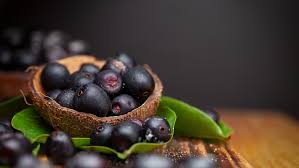
Making Herbal Soap at Home with Arjun Chaal Extract
Creating herbal soap at home using Arjun Chaal extract is a fantastic way to combine natural skincare with the therapeutic benefits of Ayurveda. Arjun Chaal, derived from the bark of the Terminalia arjuna tree, is renowned for its antioxidant, anti-inflammatory, and skin-nourishing properties. Incorporating it into homemade soap can help maintain healthy skin, reduce signs of aging, and provide gentle cleansing without harsh chemicals. On dirghaanshi, we explore step-by-step methods to make Arjun Chaal herbal soap, its skincare benefits, and tips for enhancing its effectiveness naturally.
Long Description
1. Why Use Arjun Chaal in Soap?
Arjun Chaal has been traditionally used for cardiovascular wellness, but its bioactive compounds also offer significant skin benefits:
- Antioxidant properties: Protect skin from oxidative stress and premature aging.
- Anti-inflammatory effects: Helps soothe irritated or inflamed skin.
- Moisturizing support: Maintains skin hydration and elasticity.
- Gentle cleansing: Natural compounds cleanse the skin without stripping essential oils.
By using Arjun Chaal in soap, you can enjoy these benefits daily while avoiding synthetic additives found in commercial soaps.
2. Key Ingredients for Homemade Arjun Chaal Soap
To make herbal soap at home, you will need the following natural ingredients:
- Arjun Chaal Extract: Provides antioxidant and skin-soothing benefits.
- Base Oils: Coconut oil, olive oil, or shea butter for moisturization.
- Lye (Sodium Hydroxide): Essential for saponification.
- Distilled Water: To dissolve the lye.
- Optional Additives: Essential oils (like lavender or tea tree), turmeric, or neem for extra skin benefits.
3. Step-by-Step Method to Make Arjun Chaal Herbal Soap
Step 1: Prepare Arjun Chaal Extract
- Boil 1–2 tablespoons of Arjun Chaal bark in 1 cup of water for 10–15 minutes.
- Strain and allow the extract to cool.
Step 2: Mix Lye Solution
- In a ventilated area, carefully dissolve 4 oz of lye in 10 oz distilled water.
- Stir gently and allow the mixture to cool to 40–45°C.
Step 3: Combine Oils
- In a separate container, mix 10 oz coconut oil, 5 oz olive oil, and 5 oz shea butter.
- Heat gently until all oils are fully melted.
Step 4: Saponification
- Slowly pour the lye solution into the melted oils while stirring continuously.
- Blend the mixture using a stick blender until it reaches a light trace consistency.
Step 5: Add Arjun Chaal Extract and Optional Additives
- Add 1–2 tablespoons of Arjun Chaal extract along with any essential oils or herbs.
- Stir well to ensure even distribution.
Step 6: Mold and Cure
- Pour the soap mixture into molds and cover with a towel.
- Allow it to set for 24–48 hours.
- Unmold and cure the soap for 4–6 weeks in a cool, dry place.
4. Benefits of Using Arjun Chaal Herbal Soap
a) Anti-Aging Effects
- Arjun Chaal’s antioxidants reduce free radical damage, keeping skin smooth and youthful.
b) Skin Hydration
- Natural oils combined with Arjun Chaal extract lock in moisture and prevent dryness.
c) Gentle on Sensitive Skin
- Free from harsh chemicals, making it suitable for all skin types, including sensitive or irritated skin.
d) Supports Skin Healing
- Anti-inflammatory properties help calm redness, minor irritation, and blemishes.
e) Promotes Overall Skin Health
- Regular use enhances skin tone, texture, and natural glow.
5. Tips for Enhancing Your Herbal Soap
- Use Fresh Arjun Chaal Extract: Ensures maximum potency of bioactive compounds.
- Combine with Other Herbs: Turmeric, neem, or aloe vera can boost skin benefits.
- Store Properly: Keep in a cool, dry place to maintain texture and longevity.
- Patch Test First: Always test on a small area to ensure no allergic reactions.
- Rotate Soaps: Use different herbal combinations to provide multiple benefits to your skin.
6. Why Homemade Herbal Soap is Better
- Chemical-Free: Avoids parabens, sulfates, and artificial fragrances.
- Customizable: Add herbs and oils tailored to your skin’s needs.
- Cost-Effective: Long-term savings compared to premium herbal soaps.
- Sustainable: Minimal packaging and natural ingredients reduce environmental impact.
- Therapeutic: The process of making soap itself can be a calming, mindful activity.
Conclusion
Making herbal soap at home with Arjun Chaal extract offers a natural, safe, and effective way to maintain skin health. On dirghaanshi, we highlight its antioxidant, anti-inflammatory, and moisturizing properties, along with step-by-step guidance for preparing this Ayurvedic soap. By incorporating Arjun Chaal herbal soap into your daily routine, you can enjoy gentle cleansing, improved skin texture, and long-term skin wellness. This DIY approach empowers you to create chemical-free, customized skincare solutions that honor traditional herbal knowledge while meeting modern skincare needs.













